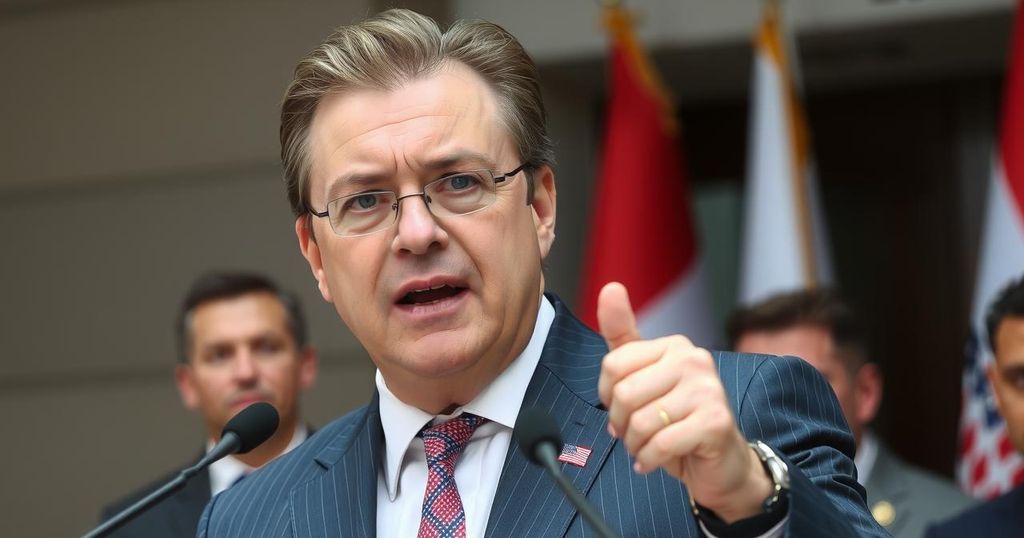Zoran Milanović Poised for Reelection in Croatia’s Presidential Runoff

Croatia’s presidential runoff on January 12, 2025, sees incumbent Zoran Milanović favored for reelection after winning the initial round decisively. His main opponent, Dragan Primorac, trails significantly. The election unfolds amid pressing national challenges, including inflation and corruption, with profound implications for Croatia’s governance and international relations in the EU framework.
On January 12, 2025, voters in Croatia participated in a runoff presidential election, with incumbent President Zoran Milanović widely regarded as the frontrunner. Milanović, representing a left-leaning platform, secured a substantial victory in the initial round held on December 29, gathering enough votes to surpass six other candidates, with his closest competitor, Dragan Primorac, polling significantly lower at 19%. The need for a runoff arose because Milanović narrowly missed the required majority by a mere 5,000 votes.
As the election unfolded, Croatia grappled with serious challenges, including high inflation, ongoing corruption scandals, and a noticeable labor shortage. President Milanović, age 58, has been a vocal critic of Western military assistance to Ukraine amid the ongoing conflict with Russia, leading to polarized opinions within the country’s political landscape. His political style, often seen as combative, has drawn comparisons to that of former U.S. President Donald Trump.
Milanović has had a contentious relationship with Prime Minister Andrej Plenković, whom he frequently accuses of corruption and undermining Croatia’s democratic institutions. In contrast, Plenković has framed the election as pivotal for Croatia’s future within the European Union and NATO, labeling Milanović as “pro-Russian” and a risk to the nation’s international reputation. In a campaign marked by harsh exchanges, both candidates sought to differentiate themselves and win the support of the electorate.
Despite the ceremonial nature of the presidency in Croatia, the position holds significant political weight, influencing the balance of power, especially in a country where the Croatian Democratic Union has dominated since independence. Political analysts note that Milanović’s unrestrained dialogue may reflect a departure from attempts to collaborate with the government, a stance he seems to embrace without hesitation, citing his past disagreements with the current administration.
The context of this election is rooted in Croatia’s political landscape, wherein the presidency, although largely ceremonial, carries substantial influence over military command and governance. Since its independence from Yugoslavia in 1991, Croatia has experienced a political environment predominantly shaped by the Croatian Democratic Union (HDZ). The current election cycle highlights significant political rifts, particularly between Milanović and the HDZ-led government, affecting national policy and public perception both domestically and in the broader European framework.
In the culmination of the Croatian presidential runoff, incumbent President Zoran Milanović is presented as the strong favorite due to his victory in the first round and his popularity among the electorate. The election is characterized by a stark ideological divide, with key issues such as military policy towards Ukraine and broader governance standards at the forefront. Ultimately, the runoff not only serves as a measure of support for Milanović but also has critical implications for Croatia’s political stability and alignment within the European Union.
Original Source: apnews.com








